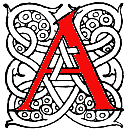[The following passage comes from “Centralisation,” a lecture Kingsley delivered at the Royal Institution, London. I have excerpted it from the Project Gutenberg online version of Kingsley’s The Ancien Régime (1867). Here Kingsley contrasts an idealized Libertarian portrait of the “British or American shopkeeper or farmer” to what he sees as people on the continent who have been corrupted by the particularly harmful results of centralization of governmental power. — George P. Landow

British or American shopkeeper or farmer asks nothing of his Government. He can, if he chooses, be elected to some local office (generally unsalaried) by the votes of his fellow-citizens. But that is his right, and adds nothing to his respectability. The test of that latter, in a country where all honest callings are equally honourable, is the amount of money he can make; and a very sound practical test that is, in a country where intellect and capital are free. Beyond that, he is what he is, and wishes to be no more, save what he can make himself. He has his rights, guaranteed by law and public opinion; and as long as he stands within them, and (as he well phrases it) behaves like a gentleman, he considers himself as good as any man; and so he is. But under the bureaucratic Régime of the Continent, if a man had not “something by command of the king,” he was nothing; and something he naturally wished to be, even by means of a Government which he disliked and despised. So in France, where innumerable petty posts were regular articles of sale, anyone, it seems, who had saved a little money, found it most profitable to invest it in a beadledom of some kind—to the great detriment of the country, for he thus withdrew his capital from trade; but to his own clear gain, for he thereby purchased some immunity from public burdens, and, as it were, compounded once and for all for his taxes.
The petty German princes, it seems, followed the example of France, and sold their little beadledoms likewise; but even where offices were not sold, they must be obtained by any and every means, by everyone who desired not to be as other men were, and to become Notables, as they were called in France; so he migrated from the country into the nearest town, and became a member of some small body-guild, town council, or what not, bodies which were infinite in number. In one small town M. de Tocqueville discovers thirty-six such bodies, “separated from each other by diminutive privileges, the least honourable of which was still a mark of honour.” Quarrelling perpetually with each other for precedence, despising and oppressing the very menu peuple from whom they had for the most part sprung, these innumerable small bodies, instead of uniting their class, only served to split it up more and more; and when the Revolution broke them up, once and for all, with all other privileges whatsoever, no bond of union was left; and each man stood alone, proud of his “individuality”—his complete social isolation; till he discovered that, in ridding himself of superiors, he had rid himself also of fellows; fulfilling, every man in his own person, the old fable of the bundle of sticks; and had to submit, under the Consulate and the Empire, to a tyranny to which the Ancien Régime was freedom itself.
Related material
Bibliography
Kingsley, Charles. The Ancien Regime. London: Macmillan and Co., 1902 Project Gutenberg [eBook #1335] Produced by David Price. Web. 23 June 2018.
Last modified 23 June 2018